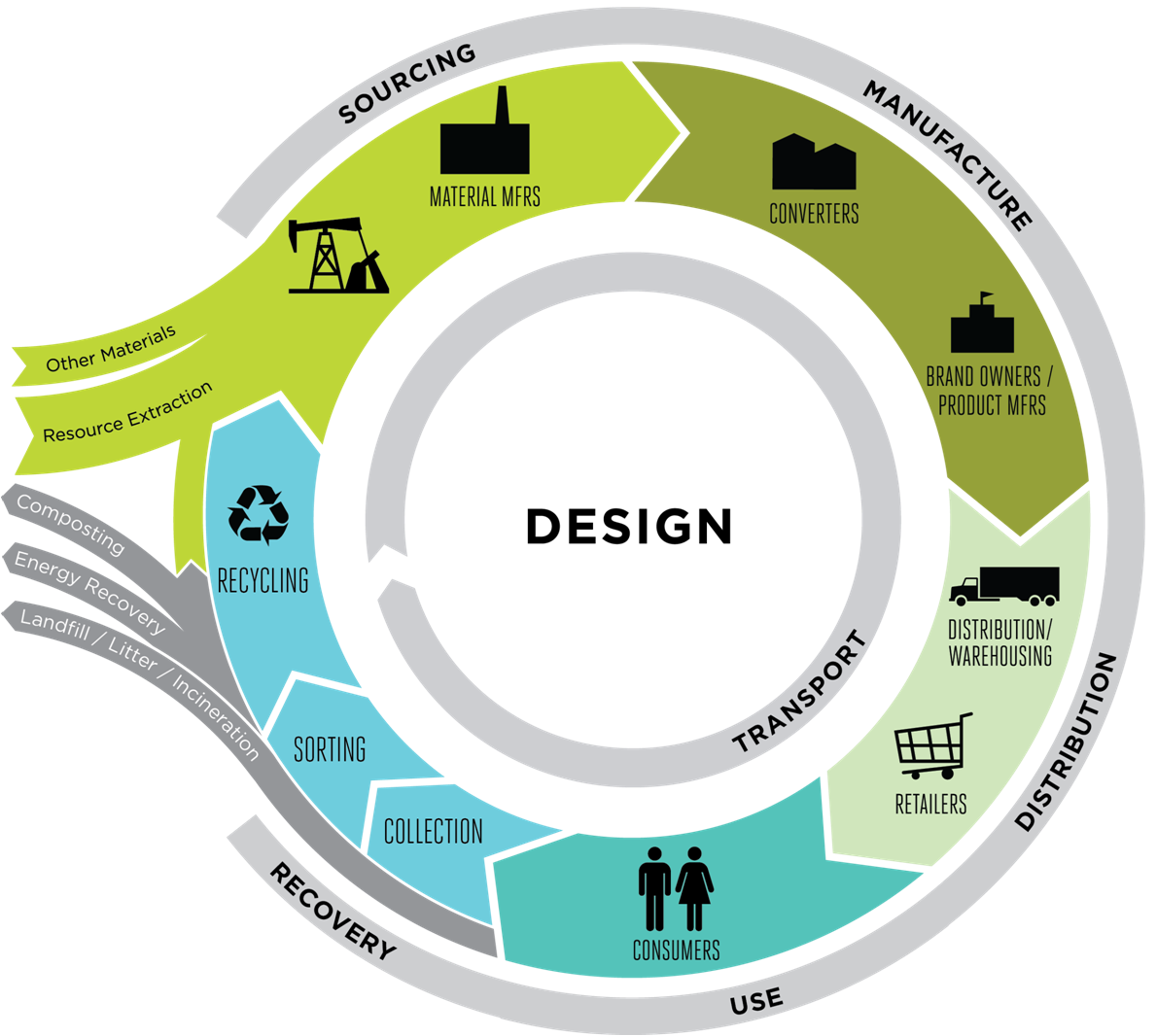Sustainable Materials Management
Our work is driven by the principles of sustainable materials management - a concept that seeks to:
Material Sourcing
The old adage “waste not, want not” is more relevant now than ever. Use Wisely means that at each step of the production life cycle, we must seek to conserve material resources. The concept of dematerialization means combining various conservation strategies such as reducing the amount of materials needed to provide the function required, extending the service life of products, and eliminating the concept of waste by ensuring that there are robust markets to reutilize post industrial and post consumer materials.
Material Health
Providing consumers with products and services that are safe for people and the environment is only possible if they are made out of safe materials. GreenBlue is developing information sharing tools to help manufacturers communicate with each other along the entire product value chain, enabling them to make more informed decisions about the chemicals and materials they use to manufacture products.
Material Value
Recovering more value out of the materials economy is synergistically related to the principle of using materials wisely, because outputs from one part of an industrial system should be used as inputs to some other part of the system, so design issues impacting sourcing and end of life considerations start to become aligned.
Life Cycle Design
Sustainable materials management is predicated on life cycle design which is a process for identifying the positive and negative impacts of the life cycle of materials as they are produced and consumed in an economy.

a more prosperous planet
GreenBlue believes that humans possess the wisdom and ingenuity to adapt and flourish, to sustain ourselves in a manner that will meet the needs of the present without compromising the ability of future generations to meet their needs.
As our awareness and understanding of the challenges increase, so must our drive to act - to find solutions that build a more sustainable future for generations to come. At all levels of society, we must cultivate a sense of stewardship that guides our economic activity so that “profitability” is just one measure of our overarching pursuit of a more “prosperous" planet.
It is imperative that humans learn how to create more sustainable systems of commerce if we are to grow prosperously.
profitability is just one measure of our overarching pursuit of a more prosperous planet
Building more sustainable systems of commerce
Of central importance to any economic system is sufficient access to the materials required to support it. As global population increases, particularly in middle income countries, so does the demand for the materials required to power our modern economies.
All sources of raw materials on planet earth are finite. While it is commonly accepted that some resources - minerals, metals, oil and gas – are finite, there is a growing awareness that even renewable resources are finite if consumption exceeds supply. Renewable feedstocks are limited by the productive capacity of the land to grow them. Even water cannot be considered a renewable resource if it is consumed at a rate that is faster than its replenishment.
The response to these challenges is not to bemoan limits but to understand what adaptations must be made in order for humans and the other creatures we share the planet with to not only live but to thrive.